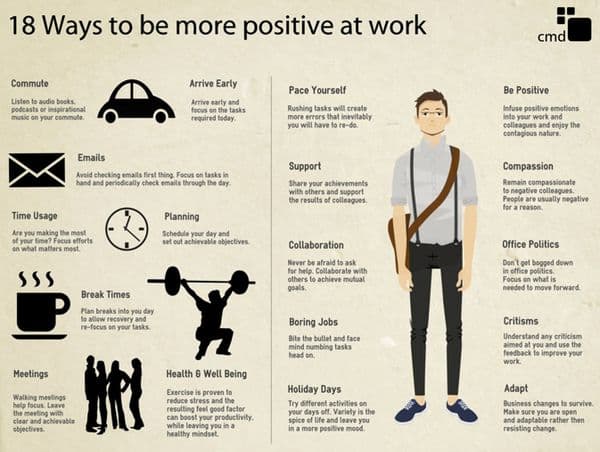How to Sell Over the Phone
To be successful when selling over the phone, you need to be prepared, enthusiastic, and knowledgeable about your product or service. You should also be friendly and personable so you can build rapport with your customer.

(Source)
It’s important to listen to the customer and understand their needs, and then present your product or service as a solution to their problem. Be sure to handle objections professionally, and always urge the customer towards the next step before you end the call.
All that is well and good, but when you drill down, that is basic telesales etiquette. Every decent telemarketer should have those qualities.
To be truly effective at selling by phone, there are habits and actions you must avoid. Let’s discuss a big one before we share tips on how to sell over the phone.
You do not have to make ‘cold’ calls
Telemarketing is a good way to introduce your product to customers who otherwise would have never heard of it. But you really want to avoid phoning prospects unless they know who you are and why you are phoning.
It is important that the lead has been warmed up a little before you try to connect with them over the phone. That is where those shiny, more modern channels for reaching prospects – email and social media – come in.
Telemarketing is made difficult by people who just call prospects ‘out of the blue’. Regardless of what you are selling, the prospect will not enjoy taking the call.
Make sure the prospect is expecting your call when you call by first connecting with them on LinkedIn or email. If you can, ask for permission to call them before calling. They will likely suggest the most convenient time for you to call.
In short, if the prospect has been warmed up beforehand or is expecting your call, there is a far better chance they will take your call and listen to what you have to say.
Before trying to sell over the phone, warm the prospect. It may seem like that’s exactly what it is, but cold calling is NOT how you do phone sales.
7 Tips for Selling Over the Phone
What are your telesales closure rates like? If you haven’t worked that out yet (even though you really have to), what are your answer rates when selling over the phone? How many of your prospecting phone calls actually get answered?
Whatever telephone selling techniques you have been using, you want to make sure you do the following. Use these as general tips and – followed in order – as the steps to successful telephone selling.
1 Get your information right
Don’t get on the phone unless you know your information is legitimate and current. With B2B sales, you want to make sure the person is still working at the company you are targeting. If they have since moved, you shouldn’t be calling them.
You can use your CRM or customer database or a telephone book to look up the phone number of existing or potential clients. Enter the phone number of the prospective client in the National Do Not Call Registry. You cannot call the phone numbers listed on the registry but you can certainly contact existing clients who are listed.
It’s not just the phone number you have to verify before you pick up the phone to call the lead. Know their full name so you can greet them by name. Ask yourself these questions before making the prospecting call:
- Do they work in the right department?
- Do they have decision-making power?
- Do they need what I am selling or they are just a random person?
Struggling to acquire accurate, reliable contact information?
Try LeadFuze:
LeadFuze is a sales prospecting solution that allows you to get accurate contact and other information for leads in your target market. All you have to do is provide information currently available to you such as name, website domain, company, or position.
Aside from providing contact details, LeadFuze can also give you a link to your prospects’ social media accounts. It aids your sales outreach campaigns by helping you build lists of accurate and verified leads.

That last question is particularly important to answer before trying to sell over the phone:
2 Do your homework before picking up the phone.
If you are working off a lead list you bought from a vendor, there is a chance some of these will be of poor quality. The leads may not be qualified, i.e there was no thorough process followed to determine their interest in and need for what you are selling.
If you are in the mortgage business, you will know that looking in the public record directories for your area can help you figure out which of your prospects own homes, and which of them have a mortgage.
Public records can help you find out information about people’s homes, which can help you when marketing certain products like pool supplies, window replacements, etc.
Do not call a prospect until you know for sure they have a need for what you are selling. You can’t sell pool services to someone who lives in a seventh-floor apartment. Respect people’s time by not calling to sell them products they don’t need.
3 Use a script
You have likely read an article that says the opposite; that advises not to sell over the phone reading from a written script. It’s not very good advice.
The reason we advise using a script is most of the time you call prospects they are not sitting by their phone waiting to talk to you. They are busy with work, family, or something else. You are interrupting (disturbing) them. You want to get straight to the point and run through your product features and value proposition quickly.
When you prepare your script, make it short. Don’t get too caught up in the features of your product. Instead, focus on the benefits. Explain the benefits of your product or service instead of listing its technical specs.
When you sound like you are reading from a script, you are simply not prepared enough. Go over your script and master it before you call prospects. Anticipate the areas of your script the prospect is likely to cut in with a question or objection and have the answer ready.
A few thoughts on handling objections:
4 Prepare to address objections
People have been prospected so many times over the phone they now have a list of objections ready for the next call by a telemarketer. So when you call prospects to sell over the phone, make sure you have answers to these objections.
Importantly, be assertive and not give the prospect the chance to end the call. Especially when you cold call, many prospects will try to end the call before listening to your offer. So do not ask questions such as:
- “Is this a good time?”
- “Do you have a few minutes to talk?”
Greet the prospect and quickly introduce yourself. Then quickly get it across to the caller that your product or service will somehow improve their lives. Otherwise, your conversation might end with an abrupt goodbye.
5 Use a presumptive close
After you’ve explained all the benefits of your product, you should ask the client how they would like to pay. For example, you could ask, “Would you rather mail a check or charge it?”
Do not give clients the option of calling you back in a couple of days, because one of your competitors might steal the sale.
That said, you don’t always have to close the sale on the first call. In fact, it’s rare that the prospect will be ready to buy that soon. So it is better to not have the close as your goal unless you are following up with a prospect you have talked to before.
If it’s the first call, it’s best you use it for discovery. Use it to gauge:
- How much research the prospect has done on their problem,
- How urgently they require a solution to their problem,
- If your product can adequately solve their problem,
- If they tried another solution before that hasn’t worked.
As part of preparing your script, build a list of discovery questions to ask the prospect. Neglecting discovery on a prospecting call is a rookie mistake. It portrays you as merely interested in the sale, not helping the prospect, which is what should be your goal.
If the prospect is still on the phone by the time you finish asking your discovery questions, well done. Many don’t get this far into the call.
Now here’s that important part:
6 Be very clear on what the next step is
As we have just said, you are going to have a frustrating experience selling over the phone if your goal is to have closed the sale by the time you hang up the phone. Your goal with a prospecting call should be to get the lead to take the next step.
What is that next step?
The next step depends on your product and your sales process. For B2B sales and big-ticket items, the prospecting phase is a series of steps. So the next step could be:
- Schedule an in-person meeting,
- Book a demonstration,
- Start a free trial.
Prospects want to build trust before making big purchases. Use your prospecting calls to do just that.
7 Ask for a referral.
If you manage to sell your product or service, you should follow up with the client and ask him or her for the names of three people who may also be interested in the product. If you have a referral program in place, this is a good time to mention it.
But it may be the case that your telephone selling effort wasn’t successful. Perhaps because they were a poor quality lead – you were trying to sell them something they don’t need or have no use for.
Before ending the call, take the opportunity to ask if they know someone who may need what you are selling. If your information was outdated and the lead has since left the company you are trying to sell to, ask if they know the person that replaced them at that company.
Did you know there are people you cannot simply call up and prospect?
Staying Out of Trouble When Selling Over the Phone
It’s important to know both when and how to sell over the phone. You should also know what to sell over the phone, but that’s a conversation for another day.
Research has shown that there are times people are more likely to answer your calls. For the best answer rates, you should call prospects around 10 am.
Between 6 am and 9 am, people are either preparing to go to work or are on the morning commute. The chances that your call will go unanswered are high.
Besides, that time around 10 am after people are settled at work and are catching up on their email, the evenings when your prospects aren’t working are a good time to call. But don’t wait till it’s too late.
The other benefit of calling after normal work hours is you are less likely to encounter a gatekeeper, which might be a secretary that’s employed to screen your prospect’s calls.
It’s also been shown that Wednesday is the best day of the week to call prospects. It is the slowest day of the week when people are less likely to be too busy to take your call.
Do not be disheartened if you have to dial hundreds of numbers before someone picks up. Sometimes, people may need some convincing before they make a purchase. Do not give up if they seem hesitant at first.
Some people will talk to you even though they have no intention to buy. Gauge the lead’s interest and validate their need early so you do not waste your valuable time on people who aren’t likely to convert into customers.
There are good and bad times to call prospects, and then there are people you mustn’t prospect over the phone.
You can legally make phone calls to your clients, but if a client tells you not to call again, then you cannot call them again.
Aside from the federal Do Not Call registry, many states have similar registries. You may incur a fine if you call someone whose telephone number appears on a state or federal Do Not Call list.
7 Tips to Improve Your Telephone Selling Game
It’s more than just being lucky or naturally good at making great salespeople. Any salesperson can be a success if they have the right knowledge and training, and practice their skills.
Here are some of the best ways to build strong customer relationships over the phone.
1 Improve your mental stamina and master your mindset
Making 300 calls a day selling things to strangers is a hard job that requires strong mental stamina. Your 201st (or 202nd) phone conversation is only the first time you’re speaking to that customer.
The prospect does not know you have been calling people all day and will expect you to be courteous and friendly. Make sure to take a break between each call, so that you can reset and be fresh for the next one. The person who answers your call must hear a pleasant and refreshed voice.
2 Always be positive.
Many people don’t realize how their attitudes affect their sales job performances. It probably wouldn’t be as easy to brush off a potential client if they were in front of you, but on the phone, it somehow feels less personal and harder.
Rejection happens. Don’t let it get you down. Know that it’s not about you. Start your day with a fresh perspective, and don’t be afraid to try new things.
Most people can tell when you’re selling something just from the way you start the conversation. If you sound forced or fake, they’ll be turned off immediately. Be authentic, positive, and natural on every call, and you’ll have much more success.
3 Be polite but don’t yield ground
The fastest way to lose control of a sales phone call is to hand the reins to the prospect. Successful salespeople always remain in control of the sales conversation.
This doesn’t mean you should do all the talking. The best sales reps will spend more of their time listening to their prospect than talking.
Controlling a telemarketing phone call involves:
- Preparing for the call on the prospect’s end by researching them.
- Having a list of flexible, open-ended questions that you can ask a prospect
- Learning how to deal with objections to your sales pitch.
Always be polite and professional even when the prospect is making it hard for you to do.
4 Learn to handle objections with poise
It’ll almost definitely happen that you will encounter some objections to your sales pitch, whether you’re a skilled telemarketer or a web-based sales rep who is simply making a quick follow-up.
Remember, it’s okay if someone has an objection to what you’re saying. It’s not personal, it’s just part of sales.
Some of the best phone salespeople see objections as an opportunity to get closer to a customer’s pain points. By understanding and responding to objections, you can show the customer that you understand their needs.
Some objections are more obvious than others—for example, a comment like “This seems too expensive.” If you’re prepared for this type of objection, you’ll be able to address it quickly and effectively.
When a customer objects in a less common way, it presents an opportunity for the sales rep to learn more about what the prospect is thinking. By keeping their ears open for these types of objections, the sales rep can gain valuable insights into the customer’s true feelings and needs.
On the next call you go on, try reframing your mindset if you hear something like this:
- When will this be rolled out?
- How do you handle customer service?
- If I decide I want to upgrade to a paid plan, how do I go about doing that??
These seemingly simple questions are ones that most reps should be able to answer, but you should always know why your prospect is asking.
Before a prospect has any reason to complain, learn their “why” — their motivation for buying. This will help you to address any underlying concerns that they might have.
5 Personalize your prospecting calls
People love to hear the sound of their names. Besides that addressing a prospect by their name when you sell over the phone tells them they are not just a random contact on a list. It tells them that you know it.
Get all the details of the prospect before you make the call. Know their full name, their work role or job title, the company they work for or the name of the business they run and what it does.
Show that you have done your homework. Prospects respect that and will be least likely to blow you off as just another telemarketer.
6 Smile
Yes, smile. Even over the phone, a person can hear you smile as you talk. They can’t see the smile but they can hear it. And that’s important because no one wants to talk to a stuffy grump.
Smiling allows your prospect you relax and engage more freely. As you talk, be careful not to turn into a monologue. Let them talk if you get them to do that and only cut in to guide the conversation.
Listening should be a salesperson’s number one skill because you can’t learn enough about a prospect’s needs if you don’t listen.
7 Use power dialing software
Sitting at a desk and making calls the whole day is a hard job. You need all the help you can get and a useful tool to have is power dialing software. A power dialing system dials the numbers for you, and after you end the call, it dials the next number.
With power dialing software you can make multiples more phone calls than you would dialing the numbers by hand. Consider investing in one if you sell a lot over the phone at your company.
FAQS – How to Sell Over the Phone
How do you start a sales call?
How do you start a sales call?
When starting a sales call, it is important to introduce yourself and your company and to build rapport with the customer. It is also important to find out what the customer’s needs are and to determine whether your product or service can meet those needs.
Once you have determined that there is a potential fit, you can then start presenting your product or service.
Can personal selling be done on the phone?
Can personal selling be done on the phone?
Yes, personal selling can be done on the phone. In fact, many salespeople use the phone as their primary tool for reaching out to potential customers. When done correctly, phone selling can be an effective way to build relationships and close deals.
However, it is important to keep in mind that not everyone is comfortable with this type of interaction. As such, it is important to be respectful of people’s preferences and only use this method if it is welcome.
How do I get customers over the phone?
How do I get customers over the phone?
It is not easy to close a sale over the phone especially when you are cold calling. But there are a few things to can do to boost your chances getting customers over the phone:
- Be clear and concise in your pitch – you want to make sure that the customer understands what you’re offering and why it’s valuable to them.
- Be friendly and personable – customers are more likely to work with someone they feel comfortable talking to.
- Be prepared to answer any questions the customer may have – this shows that you’re knowledgeable about what you’re selling and that you’re invested in helping them find the right solution for their needs.
Is it better to call or email a prospect?
Is it better to call or email a prospect?
To a prospect, cold calling is more of an ambush or interruption than cold emailing. However, because it is direct and forces the prospect into a response, cold calling may be more effective.
Ultimately, the chances of an objection or dropped call are high when you cold call as people generally don’t want to be prospected on the phone without prior notice.
Remember though, there are ways to warm a client before calling them on the phone. For example, you can try connecting with them on LinkedIn and developing some sort rapport before asking if you can call. That is a lot more effective way of selling over the phone.
Is telephone marketing legal?
Is telephone marketing legal?
Prospecting over the phone is perfectly legal, but as the salesperson you have an obligation to respect people’s privacy. If you call a prospect incessantly, the law empowers them to ask you to stop after which it will be illegal for you to call them.
There are also numbers that, legally, you cannot call for prospecting purposes. These numbers are listed on the Do Not Call Registry. Some states have similar registers, so make sure to check your state laws before you start selling over the phone.
Master the Art of Selling Over the Phone and Give Your Sales a Lift
Selling using the phone still works. While it’s true that consumers frown at the sound of another telemarketer at the other end of the line, there are ways you can do it without being too annoying for your prospects. The tips we have shared on how to sell over the phone are a good starting point.
Summing up, for effective phone sales you want to make sure the prospect information you are using is accurate and current. Not just that, you have to research the prospect, know their name, and really understand their needs and prepare a script so you sound knowledgeable on the call.
When you finally have the prospect on the phone, you want to stand your ground in the face of the objections you are surely going to have to address. But you want to stay positive, friendly, and respectful to the prospect.
So now that you have the secrets of selling over the phone, go take your sales game up a notch.
Request a Data License and Access the World's People + Company Data
Want 300 million+ profiles at your fingertips? Updated monthly with the data on your own server/host!
Including personal emails, business emails, mobile numbers, mailing addresses and more.
You get net worth, ages, company data, and more.
Use it for cold outreach, paid ad campaigns, direct mail, social selling or even cold calling.
Use it with unlimited access for your own app, outreach campaigns, or as a client service.
Oh, and did I mention we can identify individuals visiting your, or your client's, website?
Contact us for how you can access the entire dataset, on your own server. No more API limits, no price per contact.
[/scWant to help contribute to future articles? Have data-backed and tactical advice to share? I’d love to hear from you!
We have over 60,000 monthly readers that would love to see it! Contact us and let's discuss your ideas!


